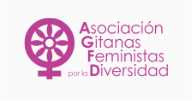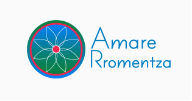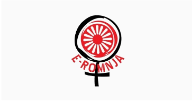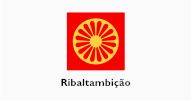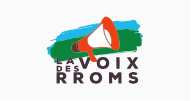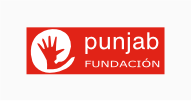Adult Schools Project
Project Summary
This project is creating the SKOLA FEMINISTA ROMANI: THE SCHOOLS OF INCLUSION INTO DIVERSITY, as well as a European network of entities work specifically for the social and educational inclusion of the Roma community.
These on-site or virtual training schools aim to provide young adult Roma women (over 18 years of age) with no education who have suffered school failure with the tools, knowledge, and skills to achieve their reincorporation into the educational field with guarantees of success, and to achieve their greater social inclusion.
These training schools are spaces for learning and to develop formal and non-formal skills for beneficiaries through dynamic learning processes adapted to the specific needs of the population to which they are directed. The objectives of these Schools of Inclusion are:
- Establish bonds with the regulated educational centers to which the beneficiaries intend to reincorporate, so the Roma youth acquire the necessary habits and skills to get access them, and achieve their educational and social inclusion once they do.
- Promote the development of skills and social inclusion in users, and spark their interest in learning as a mechanism to tackle school failure and improve empowerment and future employment and social possibilities; all this through specific educational processes.
- Educational guidance, counseling and support services for Roma students in secondary school or for the reintegration into the educational system of young Roma women.
- Materials designed to promote the inclusion, empowerment, and employability of Roma women.
SKOLA FEMINISTA ROMANI includes specific educational materials that will be taught either on-site lessons in adult education centers and/or associations, or through a virtual learning process tutored by members of the network that will allow to reconcile the daily work of the beneficiaries with their studies.
These materials not only include educational content necessary for the "reengagement" of the users to regulated education through a level equivalent to the Initial Teaching 1 course, but also have a series of non-formal contents that will allow the development of other competences among the beneficiaries, aimed at their full social inclusion and empowerment. All this through innovative methodologies like those based on various dynamic forms of artistic expression, audiovisual resources, social networks, etc.
This project is proposed as a continuous learning process for almost two years: the participating organizations and their leaders, will improve the quality and the impact of the projects they develop, thanks to the exchange of successful experiences and best practices in the inclusion of young Roma women from each partner country through their participation throughout the project in the preparation of educational materials of which they will later be the beneficiaries themselves.
Working Methodology
All these project activities and results that are being created -by and for Roma women- are based on a participatory methodology focused on non-formal and informal education, with the objective of making the learning process more appealing, motivating the participants, involving them in their own learning process, and to promote peer learning. The young Roma women themselves are the main protagonists of the project, since they are those who design and create the training materials and manage the whole project.
Project Partners
Results of the Project
The main result of the project is the TRAINING COURSE TO ACCESS ADULT EDUCATION FOR ROMA WOMEN, which is the main basis of the KIT FOR THE CREATION OF THE SCHOOL OF INCLUSION. This result consists of a specific TRAINING COURSE for adult Roma women, aimed at developing the necessary skills for their reincorporation to formal education, while allowing them to develop their empowerment, their self-confidence, and the strength to overcome the social, cultural, and economic barriers imposed.
This training course is coupled with a methodological guide with training mechanisms and strategies based on formal and non-formal work with adult Roma people and various educational materials, free of access, that not only include the educational contents necessary for the "reengagement" of the users to the educational itinerary equivalent to a Basic Education 1 course (as stipulated in Order ECD/651/2017 of July 5th, which regulates basic education and its curriculum for adults in on-site, mixed, and virtual learning within the scope of management of the Ministry of Education, Culture and Sport), but also a series of non-formal contents that will allow the development of other competencies among the beneficiaries, aimed at their full social inclusion and empowerment.
In short, we promote educational results that allow all teachers in adult education centers -or monitors who provide this type of education in entities or associations- to generate their own inclusive school in their classroom, by motivating Roma women to continue learning and overcoming the serious obstacles generated by their triple discrimination: by their gender, by their ethnicity, and by their social status.
Transnational Meetings
The following meetings were held:
M1: BUCHAREST - ROMANIA (January 2019)
After completing the preparation stage, the 1st Transnational Meeting of the project was held in Bucharest, Romania, on January 19th, 2019. Although this meeting was originally planned to be held in Portugal, the venue was exchanged with the 2nd Transnational Meeting due to the availability of partner and host organizations, thus ensuring that all of them could participate.
In this way, two attendees of each of the partner organizations came to the meeting, except for La Voix des Rroms (France), of which only one representative was able to participate. Among them were the legal representatives of each of the participating organizations, with decision-making capabilities and to reach the necessary agreements for the implementation of the project.
The main topics that were worked on this first meeting were:
- PRACTICAL AGREEMENTS AND DOCUMENTATION related to the project, signed by the legal representatives of the partner entities. It is worth highlighting the signing of agreements and the definitive framework agreement for the formalization and completion of the "Partners Agreement".
- FINAL CONCRETION OF THE PROJECT: the contents of the project were defined and specified in accordance with its schedule, and to finish specifying the activities necessary for the development of results, taking into account all possible corrections or improvement proposals from the National Agency (SEPIE)'s independent experts who evaluated the project. This also served to finish defining the budget lines and the control of expenses in the following stages.
- INTELLECTUAL OUTPUTS: TRAINING COURSE TO ACCESS ADULT EDUCATION FOR ROMA WOMEN. In all the Transnational Meetings of the project, this Intellectual Output was specifically worked on, due to its great importance. During this first meeting, its structure and contents were finalized, along with the distribution of the tasks that each partner organization had to carry out.
- PROJECT VISIBILITY. Activities were carried out to improve the visibility of the project, including the creation of the initiative logo, agreeing on the visual image of the project and specifying the characteristics of its website, which was well underway but still under construction.
- STRENGTHENING BONDS BETWEEN PARTICIPANTS. The partners got to know each other better, through work, but also through informal spaces ties bonds of friendship and trust were created.
EVALUATION OF THE PREPARATION STAGE. An on-site evaluation was carried out of all things that had been worked on, from the beginning of the project to the meeting itself (meaning the preparation phase of the project). The results of this evaluation were very positive on the part of all participating organizations.
M2: FIGUEIRA DA FOZ - PORTUGAL (June 2019)
The Second Transnational Meeting of the project (M2) was held on June 22nd 2019 in Figueira da Foz (Portugal), approximately six months after the first meeting in Romania.
This meeting was led by Marisa Oliveira (president of the entity and Portuguese leader of the project), and all the partner organizations of the project participated in it.
During the meeting, the INTELLECTUAL OUTPUT: “TRAINING COURSE TO ACCESS ADULT EDUCATION FOR ROMA WOMEN” was specifically discussed, to advance significantly in its development. We especially addressed the necessary educational resources and worked on them, on the materials for literacy and the development of the bridge course for adult Roma women who left school early, and on the development of innovative tools, which will be part of this training.
Another of the main points of this meeting was the Methodological Guide, which constitutes one of the main tangible results of this project. The meeting served to finish discussing and specifying all the aspects of this Guide, and the tasks to be developed by each organization regarding this result were also distributed among the partners.
The third block of this meeting focused on the project activities carried out so far, and on carrying out a correct monitoring and evaluation of the degree to which the project results were being achieved, obtaining the expected results, guaranteeing that these results had the required quality, etc.
In this way, a compilation was made of all the national activities that each of the partner organizations was carrying out in their respective countries, working with Roma women directly and involving them in this project.
M3: SAINT DENIS - FRANCE (November 2019)
The 3rd Transnational Meeting of the project (M3) was held on November 22nd 2019 in Saint Denis (France), almost six months after the 2nd meeting in Figueira da Foz.
During this meeting, the partners specifically discussed:
- The TANGIBLE RESULT: THE METHODOLOGICAL GUIDE TO WORK WITH THE ROMA COMMUNITY. This meeting focused on methodology, which is why we specifically worked on this tangible result. The participants shared, coordinated, and evaluated the work carried out so far by each of the organizations, in order to finish defining the pending aspects so that it could be completed in time for the next meeting.
- LEARNING WORKSHOPS ON NON-FORMAL METHODOLOGIES AND MANAGEMENT OF YOUTH GROUPS. Methods and dynamics were established on how to work adequately with adult Roma women between 18 and 30 years old through peer learning, and combining non-formal and informal educational .methodologies.
- PILOT TESTS. AMARE RROMENZA and RIBALTAMBIÇAO assumed responsibility for carrying out the pilot tests at the adult education center of AMARE RROMENZA and at the adult education center at Figueira da Foz (Portugal).
All the work done so far was put in common, and each of its managers defined the level of compliance with the planned schedule. The evaluation of the phase was also carried out in this meeting, and we began to prepare the actions aimed at disseminating the results.
M4: VIRTUAL (September 2020)
Due to the coronavirus pandemic and the difficulties that the participating entities were going through, the 4th Transnational Meeting had to be virtualized and delayed until September 23rd 2020. This virtual meeting was focused on re-structuring the whole schedule to finalize all actions left pending due to COVID-19 during the year of extension that the National Agency - SEPIE had granted us.
The main topics that we worked on in this 4th meeting were:
- MEASURES TO ADDRESS THE CONSEQUENCES OF COVID-19 IN THE PROJECT. Without a doubt, the pandemic had been a serious blow to the project. Many of the on-site activities hadn’t been able to be carried out, especially the pilot tests, which had to be carried out in the collaborating educational centers or those of the partner entities. The Diffusion Phase had also been delayed for a year, and due to the persistence of coronavirus waves, we weren’t fully sure on how to carry it out. We ultimately decided that the Multiplier Event, which was going to attract many beneficiary Roma women and leaders of the Roma community, could not be done online; we would wait for the pandemic to allow us some breathing space and adapt it to the measures required in times of COVID-19 (holding smaller events, with inter-personal safe distance, etc.), but benefiting from them to achieve a greater geographic impact. Secondary dissemination activities would be virtualized. We also established mandatory anti-COVID measures within our own entities in order to continue working as safely and normally as possible.
- SCHEDULING THE EXTENSION GRANTED BY THE ERASMUS+ PROGRAMME. We proceeded to reschedule the extension year that the National Agency - SEPIE had granted us, by assigning he partners new deadlines to finish the results, test them with their users, and proceed to the final layout.
- PLANNING THE DISSEMINATION PHASE AGAIN. We rebuilt the whole Dissemination Phase, establishing the month of July 2021 as the date to carry out all sessions of the Multiplier Event(s) necessary to achieve the desired impact.
- PREPARING THE NEW PILOT TESTS TO BE CARRIED OUT DIRECTLY BY BENEFICIARY GROUPS AND MULTIPLIERS. We concluded that we would send the materials directly to the beneficiaries and teachers so they could test them and give us their opinion and feedback. We left time until May 2021 for this.
- PREPARATION OF A MULTIPLIER EVENT IN COMPLIANCE WITH COVID-19 REGULATIONS. We decided to divide the Multiplier Event into multiple smaller sessions with the same agenda but held at different venues in Spain. In this way, we would hold smaller events that complied with COVID-19 regulations, and it would also allow us to enhance the geographical impact of the project.
- PARTIAL EVALUATION OF THE PROJECT. We did a partial evaluation of how the project was going.
Pilot Tests
COVID-19 ultimately prevented us from carrying out the pilot tests in adult education centers in Portugal and Romania, but that did not prevent us from directly contacting Roma women and teachers themselves.
Finally, more than 40 Roma women and several teachers tested the quality of our materials with very positive evaluations, which allowed us to prove the impact capabilities of our results.
Multiplier Event
Undoubtedly, the pandemic seriously impacted the whole DISSEMINATION PHASE, and especially the Multiplier Event that was scheduled for June 25th 2020.
First the confinement, and later the various measures to reduce coronavirus waves (closure of educational centers, limitation of the number of attendants to events…) made it impossible to carry it out on-site during 2020. After having analyzed it among all partners, we were clear that virtualizing the event was not an option, as it was directed at multipliers and the beneficiary group itself: Roma women.
Thus, after the extension granted by the National Agency – SEPIE, we decided to wait as long as possible for the pandemic to allow us some breathing space, and to transform the large Multiplier Event planned into a series of smaller Multiplier Events (or sessions) that would comply with COVID-19 regulations, while also allowing us to enhance the geographical impact of the event.
As it was impossible to bring multipliers from various places in Spain, we decided to bring the events closer to those places. Thus, the requested Multiplier Event became an Event with 6 sessions and a total of 90 participants:
-The first of them was held at Concejalía de Igualdad of Cartagena (region of Murcia), where an extensive presentation of the materials and the project itself was made to the city’s technicians, the youth councilman, and the secretary to the mayor. This event was held on July 1st 2021.
-The second was held at Concejalía de Juventud of Cartagena. Due to the success of the first of the events, and to the impossibility of complying with COVID-19 regulations if more participants attended, a second event was held, this time at the youth council (concejalía de juventud). This presentation of the project was made on July 10th 2021.
-The third event was held at Espacio Bellas Vistas in the Tetuán district of Madrid. This is a neighborhood venue where workshops and community action projects are carried out for the neighbors, and many of its users are Roma women. In this incredible space, on July 10th 2021, our presentation was carried out for its social workers and the community leaders, to showcase the results of the project and promote their use.
-The fourth event was held at Librería La Otra, a bookstore in Valladolid (region of Castilla la Mancha) on July 19th 2021. In it, the results were presented to teachers of adult education centers, experts, and social workers of entities that develop projects with the beneficiary group.
-The fifth of them was held in Torrelavieja (region of Cantabria), thanks to the collaboration of ARATE CALO and the municipal consistory. It was held on July 21st 2021.
-The sixth and last event was held again in Cartagena, but this time in one of the neighborhoods with the largest Roma presence in the city. This act was held on July 23rd 2021.
